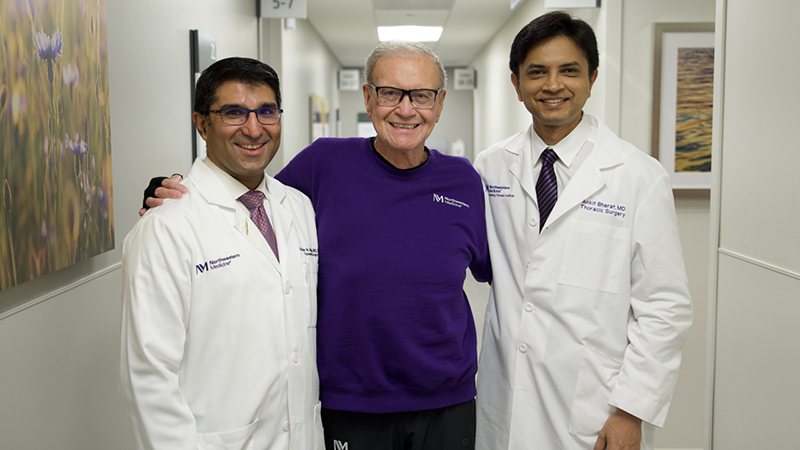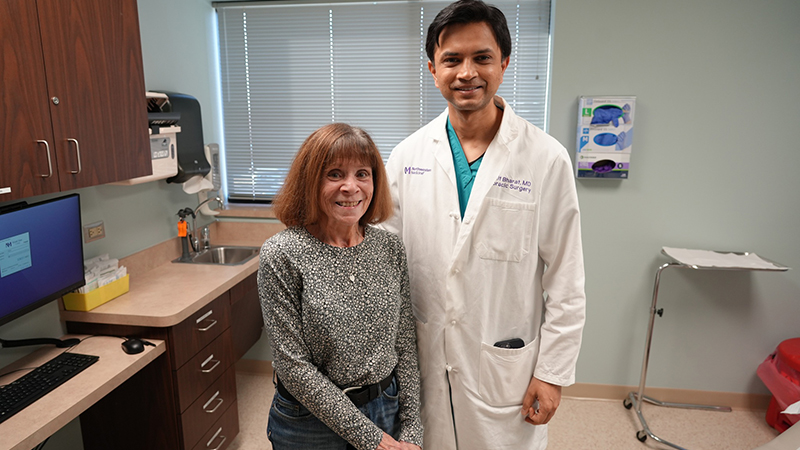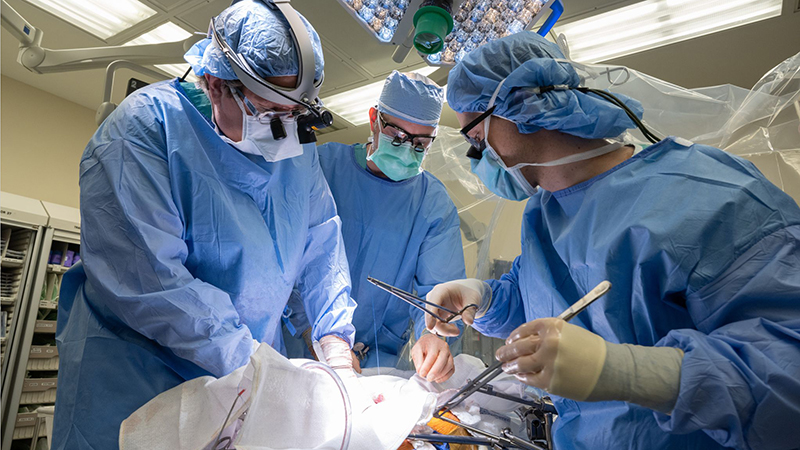Living Liver Donors
Liver Transplantation Living Donors
Living Donor Program
The Northwestern Medicine Organ Transplant Center is a leader in living donor transplant surgery. The Organ Transplant Center at Northwestern Memorial Hospital is home to the largest liver and kidney transplant program in Illinois. Northwestern Memorial Hospital has one of the largest living-donor organ transplant programs in the Midwest and is top 10 in the country.
A living donor liver transplant is possible when a healthy person donates a portion of their liver to another person. The liver has the ability to regenerate, or regrow, in both the donor and recipient. This procedure can dramatically cut the risk of death and complications in the recipient, and improvements in surgical techniques have helped to reduce the health risks for the donor.
In January 2006, Northwestern Memorial Hospital performed the world’s first laparoscopic (minimally invasive) living donor liver hepatectomy, which is the surgical removal of all or part of the liver. Since then, Northwestern Memorial Hospital has become the largest living donor program in Illinois.
Due to the success of liver transplantation, the number of patients waiting for a liver has increased dramatically during the past 10 years. Unfortunately, the number of donors has not kept pace.
The benefits of living donor liver transplants are well‐documented; livers from living donors have longer graft survival rates, function better and have fewer complications than livers from deceased donors. Patient and graft outcomes for transplant recipients continue to be excellent and compare favorably with local, regional and national outcomes.
Those who agree to be a living donor do so as a volunteer and find great reward in saving a life.
Who Can Be a Living Donor?
To be considered for a living liver donation, you must:
- Have a compatible blood type to the recipient
- Be 18 to 60 years old
- Have had no major abdominal surgery
- Be in good health with no major medical or psychiatric illnesses
- Be at a healthy weight
- Be able to understand and follow the instructions for surgery and recovery
- Understand that the outcome of the transplant may not be as expected
- Find great reward in saving a life
To see if you qualify, complete the liver donor questionnaire:
Preparing for a Transplant
To prepare for the transplant, you will need to:
- Provide your medical and psychosocial history
- Have diagnostic tests, including EKG and chest X-ray
- Undergo evaluation of the liver's size, blood supply and bile ducts
Your Independent Donor Advocate
It is important to know that the choice to donate is yours. You must not feel pressured or that donating is something you "have to do." This is a decision you need to make for yourself. You have the right to change your mind at any time. Your reasons for doing so will remain confidential. We will support you no matter what you decide.
Every donor is assigned an independent donor advocate. This person focuses on your well-being; they are not involved with the recipient. The advocate and transplant nurse coordinator will give you information about the donation surgery as well as risks to both you and the recipient.
Explore our transplant resources. These include patient education materials, support groups and more.




